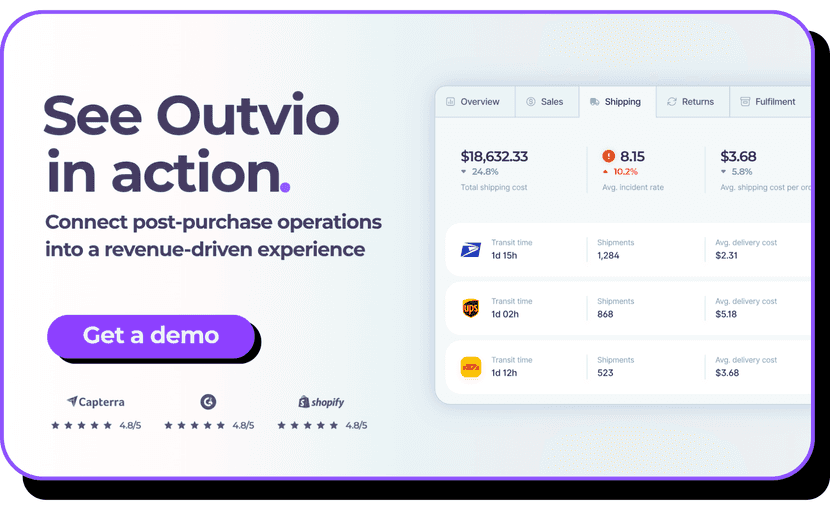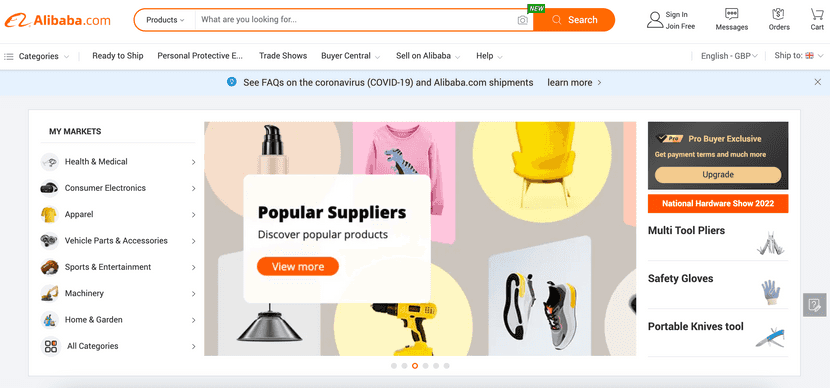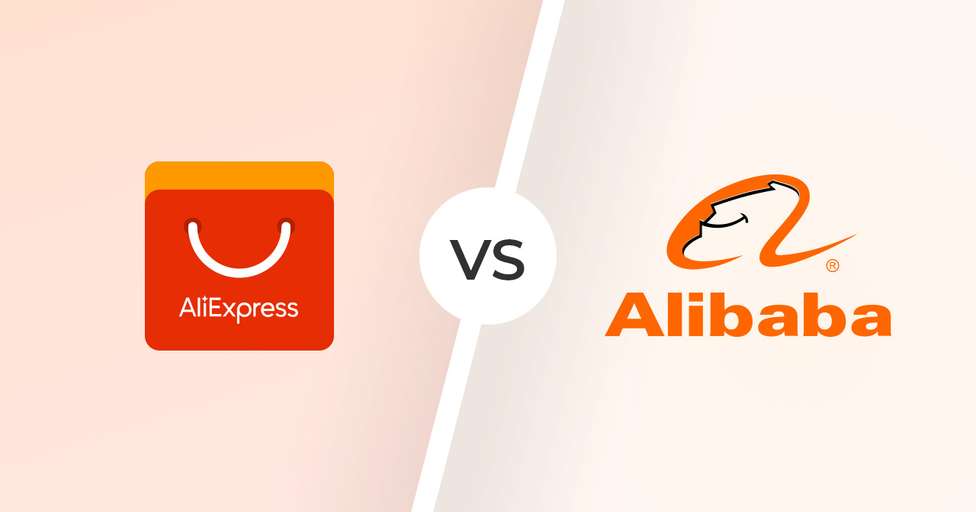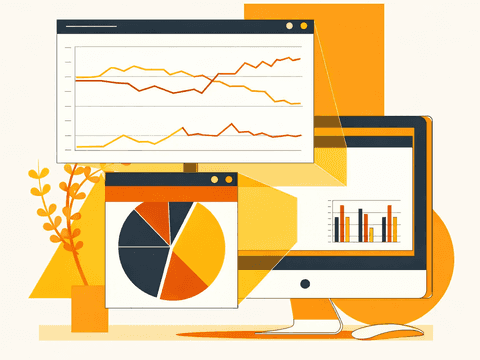In this article, we are going to tell you everything you need to know about Alibaba and AliExpress. These two Chinese marketplaces are some of the biggest in the world and they both belong to the Alibaba Group.
However, even though they belong to the same business conglomerate and specialize in online selling, there are several aspects that differentiate them.
If you want to know the difference between Alibaba and AliExpress and what the advantages and disadvantages of each are, keep reading.
Alibaba vs AliExpress: The main difference
The main difference between these two marketplaces is the type of buyer.
Depending on who your customers are, you should be on one platform or the other (or both), always changing your marketing strategy to address this change.
Alibaba is a marketplace for wholesale buyers. In other words, Alibaba is a B2B marketplace.
AliExpress is a marketplace comparable to Amazon or eBay as its customers are individuals. It’s a B2C model (business to consumer).
This is the biggest difference between Alibaba and AliExpress. Of course, this difference in the audience makes prices or the way orders are managed also different.
Generally speaking, Alibaba offers a better relationship between quantity and price, but on AliExpress you can purchase a single product from one seller, while on Alibaba you need to place larger bulk orders.

Advantages of Alibaba
Alibaba has many of its own features that can be very beneficial for your business. For example:
- Traffic (over 20 million active users)
- Target (Alibaba is a platform focused on B2B)
- International market (almost 200 countries)
- Marketing tools to increase sales (SEO improvement, branding customization on your storefront, PPC)
- Advice about your business
- Business verification (used to increase confidence in your company)
- Especially effective for larger stores (Alibaba gives stores with more products more exposure)
- Tools that ease the product upload process (you can upload products in bulk and Alibaba's “Intelligent Posting” system will suggest ways you can optimize listings to perform better based on its algorithm and buyer searches)
- “Trade Assurance” security system for transactions between buyers and sellers
- Analytical tools such as click volume, the average cost per click, user growth, store visits, inquiries, orders, and more. The system will suggest ways to improve your store based on trends and your account
- Possibility to apply for featured Alibaba promotions
- Tailor-made services such as a 90-day welcome program or the Star Rating system

Advantages of AliExpress
Selling on AliExpress has a number of advantages. For example:
- Possibility of selling in up to 20 countries (Europe and Russia)
- Gaining traffic is easier than through an independent online store
- Segmented audience with high purchase intent
- You are in control of the prices
- Automatic translations to 18 languages
- Allows more customizations than other marketplaces, although they are still very limiting
- Selling on AliExpress is free
In this comparison table, you can check the advantages of Alibaba and AliExpress:
| AliBaba | AliExpress |
|---|---|
| Segmented traffic | Segmented traffic |
| International market | Available for 20 countries |
| Marketing tools to boost sales | Prices depend on the seller |
| Advice service | Automatic translations |
| Business verification | Small customization features |
| Designed for larger retailers | Free, there's no subscription plan |
| You don't need an online store | You don't need an online store |
| Trade Assurance | |
| Analytical tools | |
| Featured-promotion programme | |
| Custom services | |
| Bulk-publishing functionality |
Disadvantages of Alibaba
Alibaba also has its disadvantages. Some of them are:
- High competition. On Alibaba, there are more than 150,000 verified sellers
- Poor-quality translations
- You need a subscription plan to sell on Alibaba. These subscription plans mean a cost of almost $2,000/year for the Basic plan, $3,000/year for the Basic Plus, $4,000 for the Standard plan, and $6,000/year for the Premium plan
| Features | Basic | Basic Plus | Standard | Premium |
|---|---|---|---|---|
| Number of products | Unlimited | Unlimited | Unlimited | Unlimited |
| Products on display | 10 | 20 | 20 | 20 |
| Request for Quotation (RFQ) | 20/month | 60/month | 60/month | 60/month |
| RFQ Green Pass | NO | 6/month | 6/month | 9/month |
| Trending keywords | ✅ | ✅ | ✅ | ✅ |
| Initial amount available for Keyword Advertising | - | - | 1000$ | 3000$ |
| Analytics | ✅ | ✅ | ✅ | ✅ |
| Subaccounts | 5 | 5 | 5 | 5 |
| Product upload service | NO | 60 (limited) | 60 | 60 |
| Creation of the mini-site | NO | YES (limited) | YES | YES |
| Business verification help | YES | YES | YES | YES |
| Support service | Permanent | Permanent | Permanent | Permanent |
Disadvantages of AliExpress
Selling through AliExpress has its drawbacks as well. Some of them are shared with Alibaba since both are marketplaces.
- Competitors. There are thousands of sellers on AliExpress potentially selling the same products you do
- Sales commissions. Depending on the type of product you sell, you will have to pay between 5 and 10% of the price of the product
- Your store won’t be known for the quality of your products since AliExpress isn’t known for this
- Poor-quality translations
- The look of your selling space is quite limited compared to an independent online store
In this comparison table, you can see the disadvantages of Alibaba and AliExpress.
| AliBaba | AliExpress |
|---|---|
| Higher competition than if you sell through your online store | Higher competition than if you sell through your online store |
| Translations aren't professional | Translations aren't professional |
| Subscription plan is needed | Your store won't be known for quality |
| Limited customization | Limited customization |
FAQs about Alibaba and AliExpress
Who owns Alibaba and AliExpress?
Alibaba and AliExpress are part of the Alibaba Group. This holding also owns AliPay, Alibaba Cloud, AliOS, and TaoBao, to name a few.
Which is cheaper: Alibaba or AliExpress?
AliExpress is more expensive than Alibaba if you consider the price per unit. However, there’s a minimum amount of products you need to purchase when placing an order on Alibaba.
As a seller, it’s more expensive to sell on Alibaba than on AliExpress, but AliExpress charges variable fees depending on the category of the product.
How does Alibaba shipping work? How does AliExpress shipping work?
The differences between Alibaba and AliExpress are minimal when it comes to shipping and logistics. Both marketplaces are quite limiting in this regard and not very functional. However, it seems that this is the case for most eCommerce platforms.
Specifically, on AliExpress you can make small customizations to a shipping template (i.e. courier, rate, destination). Using this template doesn’t guarantee that the shipping rate will be the one that the buyer ends up paying, leading to additional charges and a bad purchasing experience for the customer.
Selling on AliExpress has another disadvantage in terms of logistics: labels need to be printed individually and automated pick-up calls to couriers can’t be set up, so you’ll need to call the courier yourself or go to the post office to deliver the orders. If you want to keep track of the shipments, you need to manually enter the tracking number of the order.
Outvio automates and streamlines all your post-checkout operations.
Alibaba, on the other hand, provides a tool to improve the logistics of any eCommerce store that sells through Alibaba and isn’t based in China.
However, this system is only available for sellers based in the United States.
If you are going to sell on Alibaba or AliExpress, you will probably receive many international orders that can lead to returns. To offer international shipping with affordable rates, you’ll need to work with several couriers: UPS, FedEx, DHL, TNT, etc.
At this point, having a professional tool to improve the logistics of your business isn’t an option, but a requirement, especially when you want to provide good customer service.
Conclusions
After discovering all the features of Alibaba and AliExpress, it’s impossible to recommend one over the other. Their target is really different and depending on your brand and your target, it would either be better to choose a B2B platform or a B2C one.
You could also market your products in both marketplaces, adapting your selling strategy (prices, brand image, delivery service, etc.).
If you aren’t yet sure, you may want to read our articles on Amazon or eBay.




